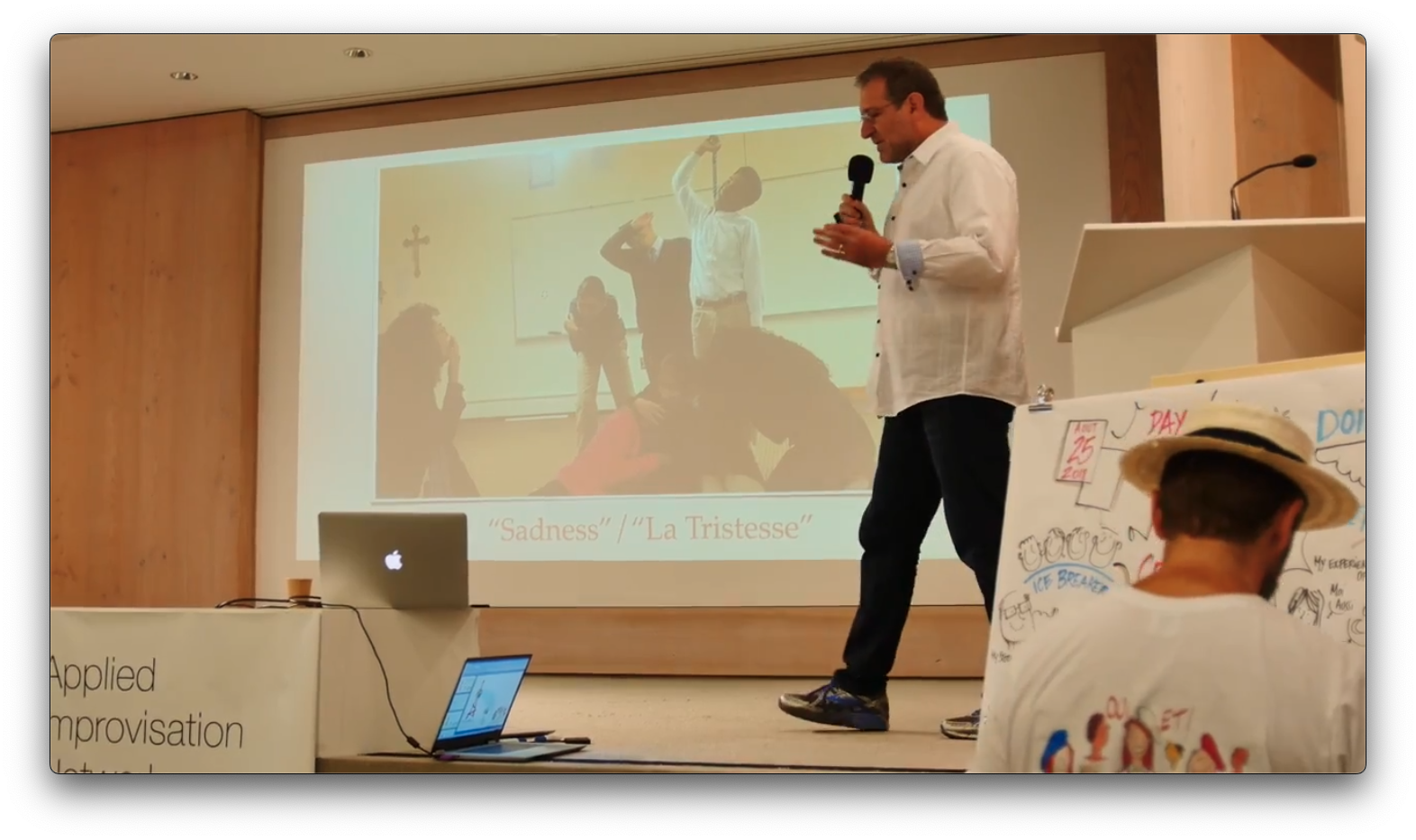AIN Keynote Speech
Improvisation As a Lifeskill
Improvisation is not solely for actors and performers. Far from it. It’s also for people from all walks of life. In 2018, I was honored to present a short keynote at the Applied Improv Network (AIN) International 2018 Conference, held in Paris, France. This is the video of my talk and it’s based on the kind of improvisation/life skills work that I developed for my students at St. Andrew Nativity School in Portland, Oregon, USA.
Science Proves That Improv Works!
Yes. Research in psychology and education often discusses the importance of adaptability and resilience in facing life's challenges. Enter improvisation! One of the key skills that is taught, practiced and then refined in improvisation classes is adapting to an always-changing environment. While not specific to improvisation, resiliency research like this 2006 study Masten and Obradović highlight the importance of these qualities for well-being.
Skills and practices of emotional Well-being are also central to living a connected and joyous life. The concept of "flow," as described by famed psychologist Mihaly Csikszentmihalyi, is often associated with activities like improvisation, where individuals experience deep engagement and enjoyment. Csikszentmihalyi's work on flow and happiness aren’t only relevant to science’s understanding of how improvisation can work but also of how it can work to help young humans to become better-functioning older humans.
Lastly, research has made clear that there is no personal growth and development without stepping out of our comfort zones and embracing uncertainty. Improvisation is CENTERED on the idea that we cannot know what will happen, a state that is terrifying to most of us in the Western World. The study and practice of improvisation is, therefore, essential to teaching participants HOW to cultivate a sense of joyous-not-knowingness. This, in turns, leads to transformative learning, where individuals undergo profound shifts in perspective.

